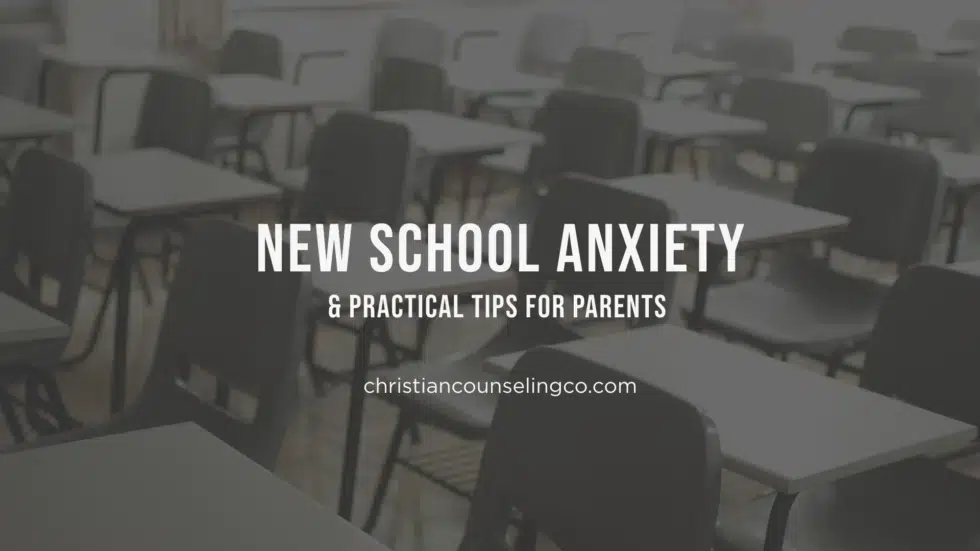Growing up, I changed schools frequently. Every time the first week rolled around, my stomach would get queasy, my hands would get sweaty, and I worried that something bad was going to happen. I didn’t know it as a kid, but I was experiencing anxiety.
Anytime we do something new, it is common to experience some level of anxiety. Starting a new school can be one of the first times our children experience anxiety! And for children and teenagers who have already endured the hardships of a pandemic, starting a new school can actually be more anxiety-provoking for them than before.
As parents, it may be difficult to find the right words to help or encourage your child in these moments. I have found that explaining what anxiety is, listening to their fears, and sharing your own experience can go a long way to calm their first day worries.
The Good News About Anxiety
1. Be yourself
So, how do we explain anxiety to our kids? Anxiety is a state of worry, unease, or fear that impacts our thoughts, emotions, and behaviors. When I talk with clients about anxiety, I point out the difference between positive and negative stress.
Negative stress leads to excessive worry (anxiety), which overwhelms our brains and bodies and does not prepare us for the task ahead. Increased heart rate, difficulty breathing and concentrating, inability to relax, irritability, tension, headaches, and withdrawal from others are common signs of too much negative stress. At this point, symptoms of anxiety make it difficult for our bodies to regulate and function normally when we encounter the stress of any kind. Needless to say, when we are anxious, we are not our best self.
Yet positive stress can actually give our body the resources it needs to accomplish our goal. It’s so powerful to understand that f uncomfortable moments and times of high stress do not always lead to anxiety. Starting a new school can actually be an opportunity for positive stress that leads to growth.
New School, New Kid?
3. Clear your schedule
1.Validate your child’s experience: One of the best things you can do as a parent is validate your child’s feelings. Tell them it’s okay to feel nervous, excited, scared, or any combination at the same time. If you let your children know that any feeling is acceptable, they will be more at peace with what they are feeling and can better manage those feelings when they come up again.
2. Share your past and present experience: Children look to parents for wisdom on how to deal with something. Telling your kids what it was like for you to start a new school is invaluable. It gives them access to a full story when they haven’t yet begun writing theirs. Letting your children know your own feelings about them starting a new school can also help them realize they are not alone in navigating these changes.
3.Follow up with them at home: Taking time to ask thoughtful, open-ended questions like “What are your teacher and classmates like?” and “What are you excited or nervous about?” gives your child space to reflect upon their experience. Following up throughout the year allows you to better understand what they are going through and lets them know you are interested in their experience.
4. Point out their strengths and skills. Is there a hard experience your child has overcome? Remind them of the event and share with them how you saw them overcome it. Point out strengths they have as a person and areas of growth you have seen recently. Children need our encouragement, especially when doing something new!
Author: trenton tinsley
Trenton Tinsley is an amazing Christian counselor on our team here in Colorado. He meets with individuals, kids, couples and families in-person and online.
If you’re interested in counseling with Trenton or another one of our other amazing counselors, click here to view our line-up.






